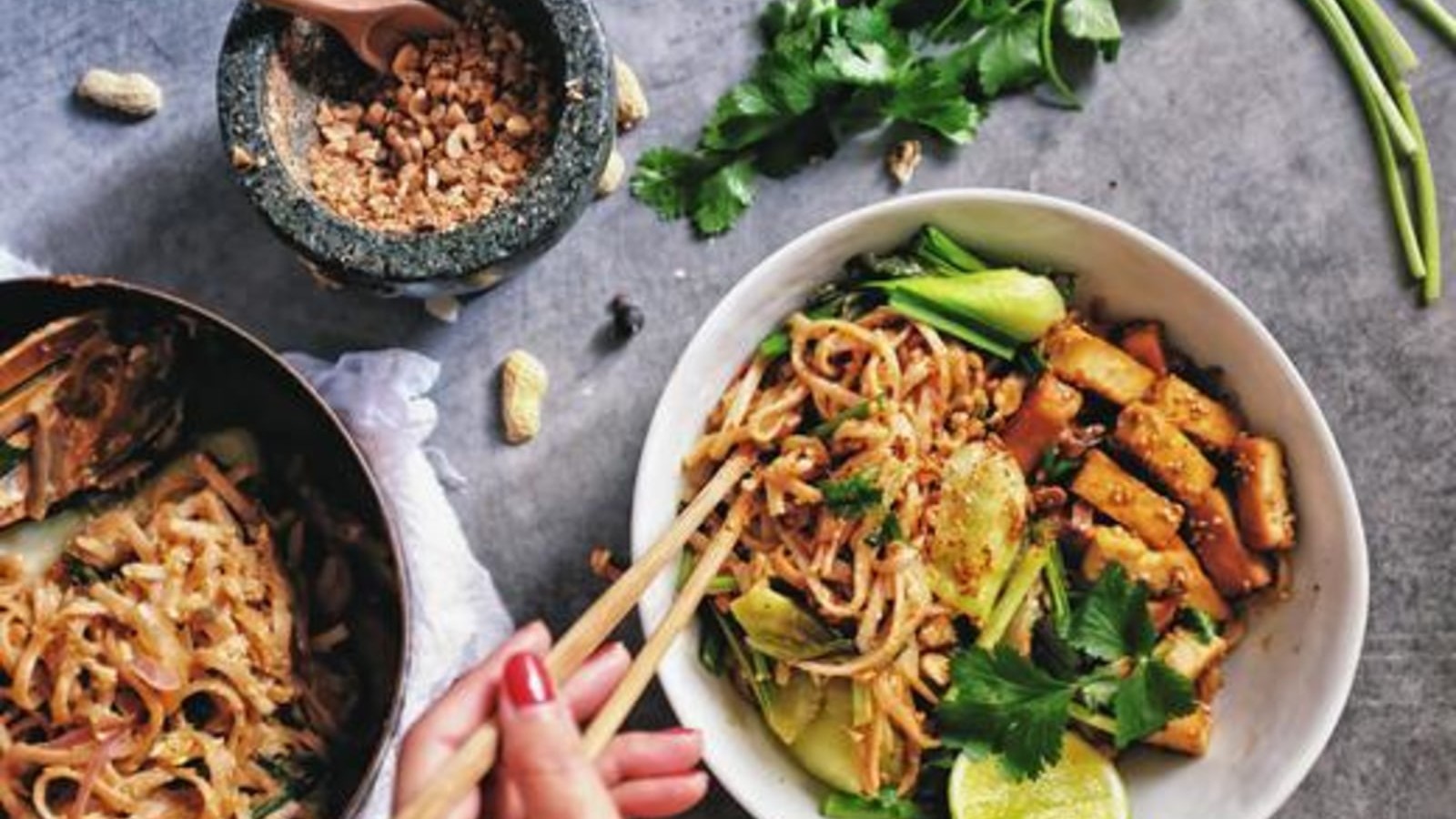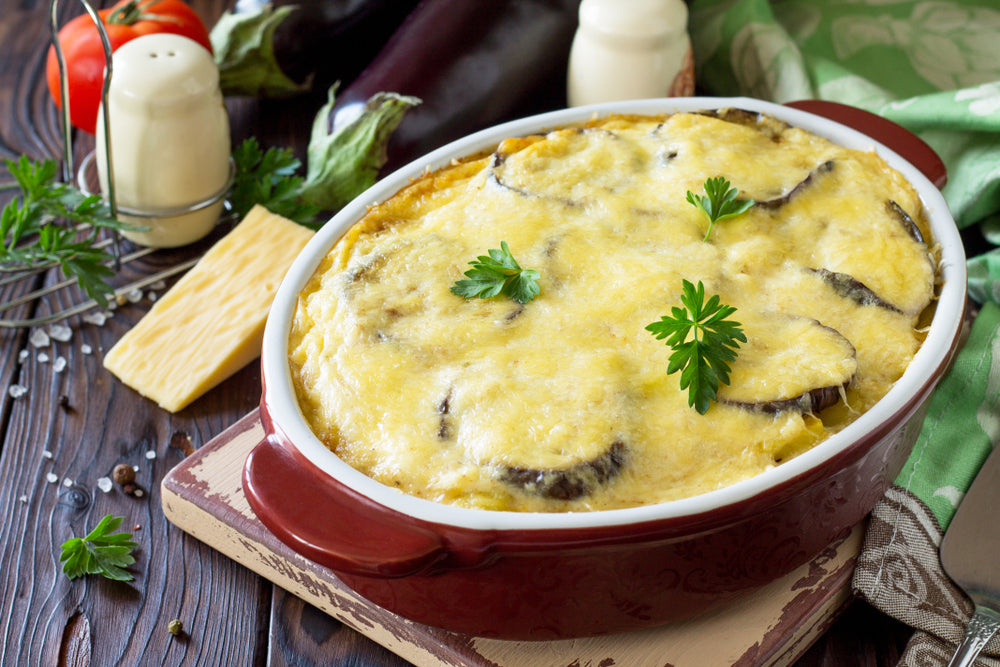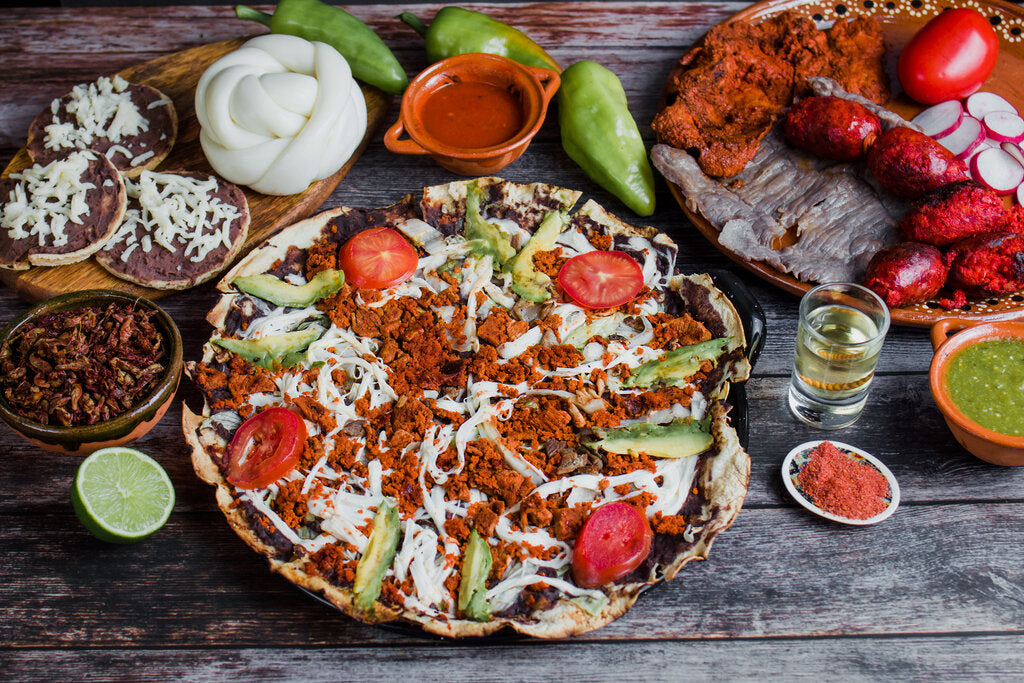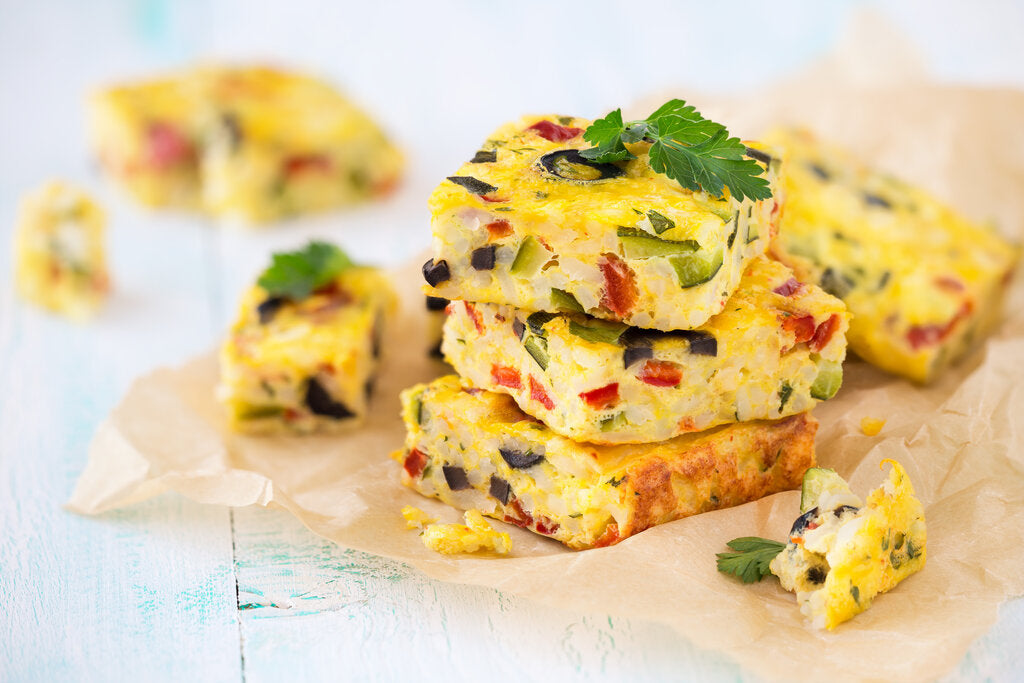This tofu pad thai recipe is built on the classic Thai street food that’s steeped in tradition. By adjusting some ingredients in the sweet and tangy tamarind sauce, we’ve made this vegan-friendly noodle dish topped with fresh cilantro and crushed peanuts.
We think there are fewer ways better to fill your belly than with a big bowl of warm, stir-fried, pad thai noodles.
The dish originated in Thailand, but it has become a food known worldwide. Americans love pad thai, and how could we not?
Pad thai is a stir-fried noodle dish traditionally cooked in a wok with a mixture of other ingredients. The contrast between the hot rice noodles and cool, fresh sprouts, cilantro, and peanuts creates some mighty appealing textures.
Traditionally, this dish is not at all vegan-friendly - most versions contain meat, fish sauce, and scrambled egg. We’ve created this recipe for vegan pad thai by removing the egg, substituting the fish sauce, and replacing the meat with heart-healthy tofu.
This meal is effortless to make in under 30 minutes, making it perfect for those nights when you’re unprepared and running late on dinner.
Grab your tofu press and wok and follow along below to make a seriously delicious and healthy pad thai!
What is pad thai?
Pad thai is one of the most popular dishes in Thai culture, found in nearly every restaurant and street stand.
The popular food was invented in the early 1900s when Thai Prime Minister Plaek Phibunsongkhram pushed the dish to popularity to create a stronger national identity for the culture as World War II loomed. Although the roots of pad thai are decidedly political, the dish was so delicious, it stuck.
What is in pad thai?
The beauty of pad thai lies in the complex flavor experience - the dish is sweet, salty, bitter, sour, and spicy in every bite.
Flat, pad thai rice noodles mix with sweet tamarind fish sauce, garlic, dried shrimp, palm sugar, red chili pepper, and meat or tofu.
Sometimes extra veggies are added to the stir fry, too. You can top these hot noodles with fresh mung beans, chopped cilantro, scrambled egg, chopped green onion, and crushed peanuts.
Making our pad thai vegan
Vegans can’t eat traditional versions of pad thai. Fish sauce is almost always added to pad thai sauce, and scrambled egg is a classic topping.
To make our vegan pad thai, we replaced meat with tofu, removed the scrambled egg, and swapped out the fish sauce for soy sauce and rice vinegar to maintain the richness of flavor.
Not only is our recipe just as tasty, but it’s healthy for you with the mineral-rich, high-protein tofu in place of the meat.
Nutrition Information - Tofu pad thai
Calories: 500kcal; Carbohydrates: 68g; Protein: 17g; Fat: 19g, Sodium: 754mg; Fiber: 5g; Sugar: 16g.
Vegan pad thai recipe - easy tips + FAQ
What to serve with pad thai
You serve a hot, steaming bowl of pad thai noodles on their own. If you want to up the veggie servings, add mushrooms, bok choy, broccoli, or snap peas into your thai stir fry.
You can also serve some pretty rockin’ side dishes, like sesame fried broccoli, roasted sweet potato medallions, or steamed bok choy and spinach.
Choosing your oil
Pad thai cooks in a hot wok over medium-high, so you’ll need to use an oil that has a high burning or smoke point and won’t burn.
The best oil options for this recipe are sunflower oil, avocado oil, or grapeseed oil.
Don’t use olive oil, flaxseed, walnut, or pumpkin seed oil as they will burn and ruin your delicious pad thai.
Is vegan pad thai gluten-free?
Vegan pad thai is naturally gluten-free, as rice noodles contain no wheat gluten.
Double-check your labels to ensure you’re using gluten-free soy sauce, as some can contain gluten.
Tamarind paste substitute
Pad thai is so good because of the sweet and savory sauce. We included tamarind paste, made from a sour-flavored fruit because it is central to the flavor in our vegan pad thai.
Tamarind paste can be a little more challenging to find than the other ingredients. If you can’t get your hands on any tamarind paste from your local Asian supermarket, add 2 Tbsp of lime juice into your sauce instead.
Sweetener options
We chose pure maple syrup for our recipe because of its rich taste, but you can select another instead if you prefer.
Agave, honey, light brown sugar, or palm sugar would all work well too!
Undercook your noodles
Rice noodles are so delicate that they barely need cooking. We like to slightly undercook our noodles as they will continue to cook in the wok and quickly become overdone.
Keep it moving
Woks can get very hot - keep stirring the ingredients in your wok constantly to avoid burning the noodles and other components.
Storage tips
If you end up with extra leftovers, no problem! Our vegan pad thai can last in the refrigerator for up to 3 days. The noodles and tofu will absorb some of the sauce, so you may want to add a bit of fresh tamarind or extra lime to refresh your meal.
We don’t suggest freezing this meal, as the noodles and tofu are too delicate and will crumble and disintegrate as they thaw.
How to reheat pad thai
Tofu continues to release water after it’s cooked, which can get a little soggy. Reheat your tofu in a pan or oven instead of the microwave to dry up the excess water. Make sure your dish reaches 165°F to kill any potential bacteria.
Final notes: Easy vegan pad thai
We hope you try out this pad thai the next time you’re in the mood for a savory bowl that can be ready on the table in 30 minutes.
If you’re vegetarian, feel free to add the traditional scrambled egg on top to up the protein even higher. Add in any extra veggies as you please; it’s a great way to use up any leftover vegetables that have been kicking around the bottom of the fridge for a little too long.
Enjoy your vegan pad thai!









Leave a comment (all fields required)